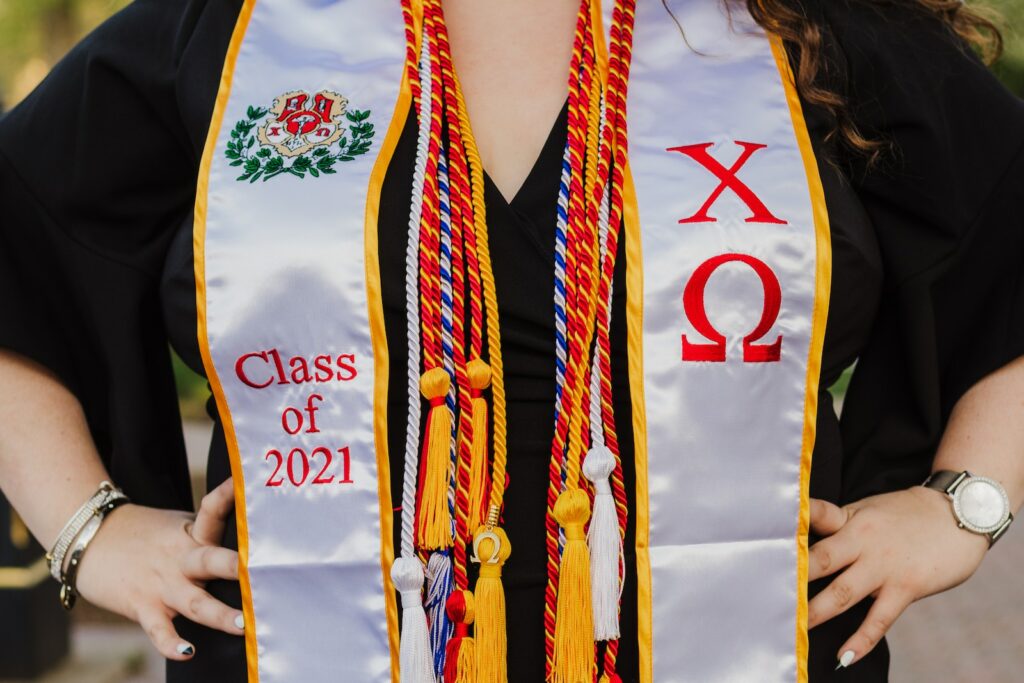When the clock struck midnight on January 1st, 2020, who could have imagined the rollercoaster of emotions that the year would bring, especially for those on the brink of graduation? From the rapid switch to online classes to virtual ceremonies, graduating during the pandemic has been a lesson in adaptability, resilience, and above all, finding joy in unexpected places.
Contents
- 1 The Shift to Digital – Navigating Online Classes
- 2 Virtual Graduation Ceremonies – Embracing New Traditions
- 3 Adapting to a Shifting Job Market
- 4 Mental Health and Graduation – Addressing the Elephant in the Room
- 5 To Travel or Not to Travel – Post Graduation Dilemmas
- 6 The Silver Linings – Finding Positives Amidst the Chaos
- 7 Virtual Graduation Gifts – Because Why Not?
- 8 Lessons for Future Graduates
- 9 Graduation During the Pandemic: One Last Look
- 10 FAQs Concerning Graduation During the Pandemic
- 10.1 Q: How can I make my virtual graduation feel special?
- 10.2 Q: Is it worth traveling post-graduation during the pandemic?
- 10.3 Q: How can I network and job hunt during these times?
- 10.4 Q: What are some coping strategies for handling post-graduation anxiety?
- 10.5 Q: Are there any unique opportunities the pandemic has presented for graduates?
The COVID-19 pandemic dramatically transformed the landscape of education, propelling students and educators alike into a new era of digital learning. Gone were the days of rushing to campus, struggling to find a parking spot, or juggling a coffee and backpack while racing to make it to a lecture on time. Instead, attending lectures in pajamas, once considered a rare luxury, became the new norm. However, beneath the comfort of our cozy bedrooms, students encountered a myriad of challenges and adaptations, redefining what it meant to learn in a digital world.
One of the most significant challenges students faced during the transition to online classes was the struggle to maintain focus. While the allure of attending lectures from the comfort of one’s own space was undeniable, it also presented a host of distractions. The siren call of social media, the temptation of the fridge just a few steps away, and the comfort of one’s own bed were formidable adversaries to the pursuit of knowledge. As a result, students had to develop new strategies to create a conducive learning environment at home, often involving designated study spaces, strict schedules, and the discipline to resist the pull of distractions.
Zoom fatigue quickly emerged as a prevalent issue. Staring at a screen for hours on end, often in multiple back-to-back video calls, took a toll on students’ mental and physical well-being. The absence of in-person interaction meant that students missed out on non-verbal cues and the spontaneity of face-to-face discussions. The “Brady Bunch” grid of faces on a screen, once novel, soon became monotonous. To combat this, students sought ways to break the monotony, such as incorporating regular breaks, engaging in virtual extracurricular activities, and experimenting with different video conferencing platforms that offered varied features to make online learning more engaging.
Perhaps one of the most unexpected challenges was the spatial limitation of the bedroom-turned-classroom. What used to be a place of rest and relaxation was suddenly expected to double as a space for focused learning. The psychological boundaries between work, rest, and play blurred, making it difficult to switch modes effectively. Students had to adapt their living spaces to accommodate this new reality, often rearranging furniture, investing in ergonomic chairs, and optimizing their tech setup to ensure they could participate fully in virtual classes. What about virtual graduation ceremonies?
Virtual Graduation Ceremonies – Embracing New Traditions
The traditional image of graduates throwing their caps in the air amidst a sea of fellow students and jubilant families underwent a profound transformation during the COVID-19 pandemic. As social distancing measures and health concerns prohibited large gatherings, universities and schools turned to virtual graduation ceremonies as a means of recognizing and celebrating the achievements of their students. While the absence of the physical stage and the cheers of a live audience were undeniable losses, this shift to the digital realm spurred graduates to unleash their creativity and find inventive ways to commemorate their milestones.
Zoom parties quickly became a popular alternative to the traditional post-ceremony celebrations. Graduates, separated by miles or even continents, gathered on video calls to share heartfelt congratulations, don their caps and gowns, and raise virtual toasts to their accomplishments. These online gatherings transcended geographical boundaries, enabling friends and family members who might not have been able to attend an in-person ceremony to join in the festivities. The virtual format allowed for personal touches, like customized backgrounds and celebratory virtual filters, adding a unique flair to each gathering.
Car parades emerged as another unconventional yet heartwarming tradition. Graduates, adorned in their regalia, embarked on celebratory processions through their neighborhoods, with friends and family following behind in decorated cars, honking horns, and waving banners. These parades turned residential streets into impromptu graduation marches, attracting the attention and admiration of onlookers. The sense of community and shared celebration was palpable, even from a distance.
In a surprising twist, some graduates ventured into the realm of virtual worlds to create memorable graduation experiences. Minecraft, a popular sandbox game, served as an unexpected graduation venue for some. Graduates and their friends came together in the digital realm, building intricate virtual campuses and stages where avatars donned caps and gowns, and ceremonies were conducted with flair. The blending of the real and virtual worlds allowed for limitless creativity and a sense of togetherness that transcended the physical limitations of the pandemic.
Additionally, social media played a pivotal role in documenting and sharing these unique celebrations. Graduates flooded platforms like TikTok, Instagram, and Twitter with their graduation stories, photos, and videos. These digital expressions of joy and accomplishment resonated with a global audience, offering inspiration and solidarity to others facing similar challenges. Job market adaptation is also a crucial aspect to manage.
Adapting to a Shifting Job Market
As if job hunting post-graduation wasn’t daunting enough, the class of 2020/21 faced the added challenge of navigating a global pandemic that disrupted industries, altered employment trends, and upended traditional job-seeking strategies. However, it’s important to note that amidst the uncertainty and unprecedented circumstances, many students exhibited remarkable resilience and adaptability, proving that they were well-equipped to face the evolving job market.
One of the most noticeable adaptations was the widespread acceptance of remote work. With companies and organizations transitioning to remote and hybrid work models to ensure the safety of their employees, recent graduates seized the opportunity to secure remote positions. This shift allowed them to explore job opportunities beyond their immediate geographic locations, expanding their horizons and opening doors to companies they might not have considered otherwise. The flexibility of remote work also enabled graduates to balance job hunting with other pursuits, such as further education or freelancing.
Freelancing emerged as an attractive option for many graduates during the pandemic. The gig economy offered a platform for them to leverage their skills and talents, providing a source of income while they continued their job search or explored entrepreneurial ventures. Freelancing not only offered financial stability but also allowed graduates to build a diverse portfolio and gain valuable experience across various projects and industries.
Further education became a strategic choice for some recent graduates. With the job market in flux, many individuals opted to pursue advanced degrees, certificates, or online courses to enhance their qualifications and stay competitive. This investment in education served as a means of upskilling and adapting to the evolving demands of the job market. Additionally, it provided an opportunity to network with peers and industry professionals in a virtual learning environment, which was particularly important when traditional networking events were scarce.
Resilience was indeed a hallmark of the class of 2020/21. Graduates faced unprecedented challenges, including uncertainty about job availability, economic instability, and the emotional toll of the pandemic. However, they demonstrated remarkable adaptability, a willingness to embrace change, and a commitment to taking control of their career paths. This adaptability was reflected in the creative approaches they took to job hunting, their openness to new work arrangements, and their ability to pivot in response to shifting market dynamics. One thing is certain, it took a great level of mental health to continue.
Mental Health and Graduation – Addressing the Elephant in the Room
The journey to graduation is often portrayed as a culmination of years of hard work and dedication, a moment of triumph where joy and celebration reign supreme. However, for many graduates, this moment is far more complex. It’s a mixture of joy, sadness, and anxiety – a whirlwind of emotions that can be challenging to navigate. Recognizing and addressing the mental health concerns that often accompany this significant life transition is crucial, especially in the context of a global pandemic.
The emotional cocktail that graduates experience is entirely natural. Joy stems from the accomplishment of a significant milestone, the sense of achievement, and the anticipation of new beginnings. Yet, sadness can also creep in as graduates bid farewell to a familiar chapter of life, parting ways with friends and mentors, and confronting the uncertainty of the future. Anxiety often lingers as graduates grapple with the weight of expectations, the pressure to find employment, and the realization that the post-graduation landscape may look very different from what they had envisioned.
Acknowledging these emotions and addressing the elephant in the room, which is the mental health of graduates, is of paramount importance. The stigma surrounding mental health has been progressively diminishing in recent years, but the challenges posed by the pandemic have further underscored the need for open and empathetic discussions about mental well-being.
Fortunately, universities and communities have recognized the significance of providing support during this critical time. They have stepped up efforts to offer resources and platforms for students to share their feelings and seek help. These resources often include counseling services, mental health hotlines, and online support groups where students can connect with peers who are going through similar experiences. Could travel be a good way to cope?
To Travel or Not to Travel – Post Graduation Dilemmas
Graduation marks the end of an era and the beginning of new adventures. For many, this includes the dream of traveling the world, exploring far-off destinations, and experiencing different cultures. However, the COVID-19 pandemic forced graduates to reevaluate their travel plans as borders closed, and the prospect of international adventures became uncertain. Yet, as the saying goes, “When one door closes, another opens,” and recent graduates found themselves facing a unique set of dilemmas and opportunities in the realm of travel.
The dreamy European backpacking tour or the exotic Southeast Asian adventure that once seemed like a rite of passage had to take a backseat for many graduates. The uncertainties surrounding the pandemic, including travel restrictions, quarantine requirements, and health concerns, made international travel less appealing and often impractical. The world suddenly felt smaller, and the idea of crossing borders became fraught with logistical challenges and safety considerations.
However, as the pandemic persisted, a new trend emerged among recent graduates: the exploration of their own backyards. With international travel on hold, many discovered the beauty and richness of their local surroundings. They ventured into nearby towns, parks, and natural wonders they had previously overlooked. This newfound appreciation for the local allowed graduates to connect with their communities, support local businesses, and gain a deeper understanding of the culture and history right at their doorstep.
Another approach that graduates embraced was planning for that epic trip once the world opens up. While they couldn’t embark on their dream adventures immediately, they used the downtime to meticulously research, plan, and save for future travels. They created detailed itineraries, learned new languages, and immersed themselves in the culture and cuisine of their dream destinations from the comfort of their homes. This period of anticipation added a layer of excitement to their post-graduation plans, as they eagerly awaited the day they could finally set off on their grand adventures.
Additionally, some graduates turned to alternative forms of travel. Domestic road trips, camping excursions, and outdoor adventures gained popularity as they provided a way to explore safely while adhering to social distancing guidelines. The freedom of the open road and the allure of nature’s wonders provided a sense of escapism and adventure during a time when traditional forms of travel were restricted. Are there any positives to this situation?
The Silver Linings – Finding Positives Amidst the Chaos
The COVID-19 pandemic brought unprecedented challenges, disrupting lives, economies, and education systems. However, amidst the chaos and uncertainty, it also revealed unexpected silver linings and valuable lessons for recent graduates. Here, we delve into some of the positive aspects that emerged from this global crisis.
- Community and Connection: One of the most profound lessons of the pandemic was the importance of community. As social distancing measures forced people to physically isolate, the need for emotional and social connection became increasingly evident. Recent graduates found new ways to stay connected with loved ones, whether through video calls, virtual game nights, or socially distanced outdoor gatherings. This period of isolation fostered deeper bonds with family and friends, as people leaned on each other for support and solidarity.
- Resilience and Adaptability: The pandemic was a masterclass in adaptability. Recent graduates faced unexpected disruptions in their academic and career plans, forcing them to pivot and find creative solutions. This adaptability became a valuable skill, one that would serve them well in an ever-changing job market. It taught them the importance of resilience in the face of adversity and the ability to thrive in uncertain circumstances.
- Personal Growth: With more time spent at home, many graduates turned to self-improvement and personal growth. They pursued new hobbies, learned to cook gourmet meals, took up yoga or meditation, and honed their artistic or creative skills. This period of self-discovery allowed them to tap into previously undiscovered talents and interests, fostering a sense of fulfillment and personal growth. Trust in God is something to consider as this will help with mental stability.
- Entrepreneurship and Innovation: The pandemic spurred entrepreneurial spirit among recent graduates. Some seized the opportunity to launch their own ventures, ranging from e-commerce businesses to innovative tech startups. The changing landscape created new niches and demands, and graduates embraced the chance to innovate and contribute to the evolving economy.
- Online Learning and Upskilling: The shift to remote education prompted many graduates to explore online learning platforms and acquire new skills. They used this time to enhance their qualifications, gain certifications, or learn about emerging technologies, positioning themselves for a competitive edge in the job market.
- Environmental Awareness: The slowdown in economic activity led to noticeable improvements in air quality and reduced carbon emissions in many areas. Graduates became more environmentally conscious, realizing the positive impact of reduced travel and increased remote work on the environment. This newfound awareness fueled interest in sustainability and eco-friendly practices.
- Time for Reflection: The pandemic forced a pause in the fast-paced world, providing graduates with valuable time for self-reflection. Many reevaluated their life goals, career aspirations, and personal values. This period of introspection led to more intentional decision-making and a clearer sense of purpose. Developing gift sharing ideas can also work!
Virtual Graduation Gifts – Because Why Not?
The digital age has transformed nearly every aspect of our lives, and gift-giving is no exception. As traditional in-person graduations gave way to virtual ceremonies during the COVID-19 pandemic, the way we exchange gifts also underwent a significant makeover. While the sentiment of celebrating a graduate’s achievements remained the same, the means through which we expressed our congratulations evolved to fit the times.
- E-Gift Cards: E-gift cards became a popular choice for virtual graduation gifts. They offer flexibility, allowing graduates to choose what they’d like to purchase, whether it’s books, electronics, clothing, or even a meal from their favorite restaurant for a special occasion. These digital gift cards can be delivered instantly via email, making them a convenient and thoughtful option for well-wishers.
- Online Courses: With the job market becoming increasingly competitive, the gift of education took on a new form. Many opted to gift graduates access to online courses or workshops in areas of interest or professional development. Platforms like Coursera, Udemy, and LinkedIn Learning offer a wide range of courses, allowing graduates to enhance their skills or explore new subjects from the comfort of their homes.
- Subscriptions to Wellness Apps: The pandemic underscored the importance of mental and physical well-being, and wellness app subscriptions became a fitting gift choice. These apps offer guided meditation, workout routines, nutrition plans, and stress management tools. They empower graduates to prioritize self-care, which is especially valuable during times of transition and uncertainty.
- Digital Books and Audiobooks: With e-readers and audiobook apps readily available, digital books became a convenient and eco-friendly gift option. Graduates could build their digital libraries and explore a wide range of genres, from self-help and personal development to classic literature and fiction.
- Online Shopping Spree: Some gift-givers opted for a virtual shopping spree. By sending a digital budget to the graduate, they allowed them to explore their favorite online stores and make purchases as they wished. This approach combines the thrill of retail therapy with the thoughtfulness of a personal gift.
- Virtual Experiences: In lieu of physical gatherings, virtual experiences gained popularity. Graduates received gifts such as virtual cooking classes, wine tastings, online escape room adventures, or tickets to live-streamed concerts or theater performances. These experiences provided a sense of excitement and connection despite physical distances.
- Personalized Digital Gifts: Creative individuals crafted personalized digital gifts, such as custom-made digital art, photo albums, or video messages from friends and family. These thoughtful and unique presents added a personal touch to the celebration. The question may be asked: Are there any lessons to learn from this entire experience?
Lessons for Future Graduates
Graduating during a global pandemic was undoubtedly a unique and challenging experience. However, it also offered a wealth of lessons and insights that can be invaluable for future graduates as they navigate their educational journeys and prepare for their transition into the professional world. Here are some key lessons that future graduates can observe and learn from:
- Flexibility and Adaptability: The pandemic taught recent graduates the importance of flexibility and adaptability. They had to quickly adjust to unexpected changes in learning environments, work arrangements, and life plans. Future graduates can take away the lesson that being open to change and having the ability to pivot when necessary are crucial skills in today’s fast-paced and unpredictable world.
- Digital Proficiency: The pandemic accelerated the adoption of digital technologies across various industries. Recent graduates had to become proficient in using online learning platforms, video conferencing tools, and digital collaboration software. Future graduates should recognize the significance of digital literacy and seek opportunities to enhance their skills in areas such as virtual communication, data analysis, and remote work technologies.
- Resilience and Perseverance: Graduating during a pandemic required a great deal of resilience and perseverance. Many graduates faced setbacks, job market uncertainties, and personal challenges. Future graduates can draw inspiration from their predecessors’ ability to persevere through adversity and develop strategies for managing stress and maintaining a positive mindset in the face of challenges.
- Emotional Intelligence: The pandemic emphasized the importance of emotional intelligence (EQ) as graduates navigated remote learning, virtual work, and social isolation. Understanding and managing one’s emotions, as well as empathizing with the emotions of others, became crucial skills. Future graduates can prioritize developing their EQ, as it is highly valued by employers for effective teamwork, leadership, and communication.
- Adapting to Remote Work: The shift to remote work became a new reality for many recent graduates. Learning to thrive in a remote work environment, with its unique set of challenges and opportunities, became an essential skill. Future graduates can proactively prepare for the possibility of remote or hybrid work arrangements by cultivating discipline, time management, and effective communication skills.
- Networking and Building Relationships: The pandemic highlighted the importance of networking and building professional relationships, even in virtual spaces. Recent graduates had to adapt their networking strategies, attending virtual career fairs, webinars, and online meetups. Future graduates can recognize the value of networking and start building connections early in their academic and professional journeys.
- Lifelong Learning: The pandemic underscored the importance of lifelong learning. Graduates quickly realized that the skills and knowledge they acquired during their formal education were just the beginning. Continuous learning and upskilling are essential for staying competitive in a rapidly evolving job market.
- Community and Support Systems: Graduates discovered the strength of their support systems, including family, friends, professors, and mentors, during the challenging times of the pandemic. Future graduates can prioritize building and nurturing these support networks, recognizing that they play a vital role in personal and professional growth.
Graduation During the Pandemic: One Last Look
Graduating during a pandemic is not just about receiving a degree. It’s a testament to resilience, adaptability, and the human spirit’s ability to find joy amidst chaos. As the world moves forward, so will you, equipped with experiences and stories that future generations will marvel at.
FAQs Concerning Graduation During the Pandemic
Q: How can I make my virtual graduation feel special?
Celebrate with a themed Zoom party, order in your favorite food, and don’t forget to dress up – even if it’s just the top half!
Q: Is it worth traveling post-graduation during the pandemic?
It depends on travel restrictions and personal comfort. Exploring local spots can be just as rewarding.
Q: How can I network and job hunt during these times?
Leverage platforms like LinkedIn, attend virtual industry events, and don’t hesitate to reach out to professionals for virtual coffee chats.
Q: What are some coping strategies for handling post-graduation anxiety?
Stay connected with friends, seek counseling or therapy, engage in physical activity, and don’t be too hard on yourself.
Q: Are there any unique opportunities the pandemic has presented for graduates?
Absolutely! From remote work opportunities to upskilling through online courses, the digital age presents numerous avenues to explore and grow.






